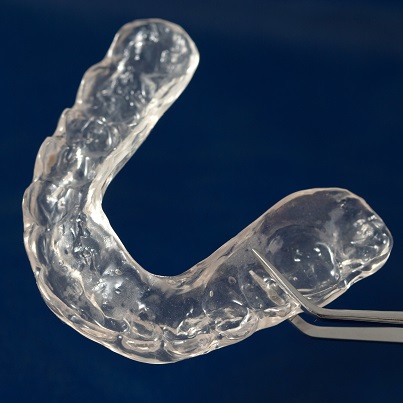Monday - Friday: 8.30am - 5.30pm
Grinding and Temporomandibular joint dysfunction
Teeth grinding and clenching - Bruxism
Bruxism is excessive clenching or grinding of teeth which can lead to excessive wear on your teeth and may cause permanent damage to your teeth and jaw joints. Bruxism may occur during the day or at night, often during sleep when you have no conscious control over clenching and grinding. You may be unaware you are grinding your teeth, and your partner is often the first person to notice the problem. Causes of bruxism is still being studied however it is believed a combination of physical and psychological factors may contribute to it.
Factors which may contribute to bruxism:
- physical stress such as illness, nutritional deficiencies or dehydration
- psychological stress, anxiety and tension
- improper bite which can be caused by abnormality of your teeth or jaws
There are various signs and symptoms of bruxism, which can vary in frequency, duration and intensity.
Signs and symptoms you may experience include and are not limited to:
- pain in your teeth
- sensitive teeth to heat and cold
- facial pain
- tension headaches
- noise, noticed by partners during sleep, which occurs as teeth are ground together
- flattened and worn tooth surfaces
- fractures of the tooth enamel
- broken or chipped teeth
- loose teeth
- stiffness and pain in jaw joints which can cause restricted opening and chewing difficulties
- earache or jaw joint pain
Our dentists at Lyneham Dental Care will work with you to treat your bruxism. Depending on your symptoms, your dentist may recommend treatment to remove the causes, change the behaviour that causes your bruxism and repair the damage caused by bruxism to protect your health.
Your treatment may include:
- a custom made occlusal splint (night guard) to protect your upper and lower teeth, worn at night to prevent further wear of the tooth surfaces
- muscle relaxant injection to elevate some or all of the soreness and discomfort
- painkillers for muscular pain, headaches and jaw join pain
- muscle relaxant medication to help relax your jaw muscles
- repair of damaged teeth
- correction treatment for improper bite
- for stress related bruxism, your dentist may recommend counselling, stress management or relaxation methods
If you suspect you may have bruxism, or are suffering from any of the symptoms, contact Lyneham Dental Care. We can help you identify the cause of the problem and offer advice on the best way for you to manage it.

